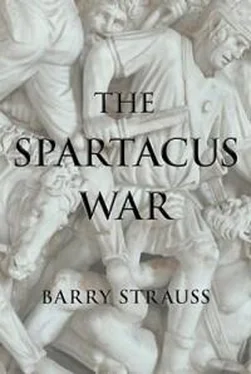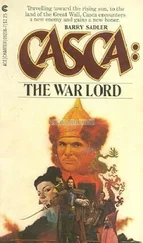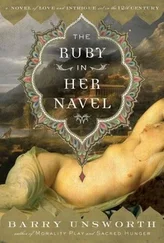Arausio, Battle of (105 BC)
aristeia (story of warrior’s heroic deeds)
Arminius, Hermann
armour
Arrius, Quintus
Asia Minor
Asicius, Lucius
Aspromonte, Plains of
Aspromonte Mountains see also Melìa Ridge
Crassus’s fortifications in
Roman army meets rebels in (71 BC)
Atena Lucana (Atena Petilia), hills around
Aufidus (Ofanto) River
Augustus, Emperor (Gaius Julius Caesar Octavianus)
Auriolus
Avella (Abella)
Bacchae, The
Bacchantessee also Dionysus, worshippers of
Bacchussee also Dionysus
bailiffs, plantation (vilici)
Balkans
bandits
Basilicata see Lucania
Batiatus, Lentulus (see Vatia)
battle, prayer before
battle, wine consumed before
battle tactics
Beneventum (Benevento)
Bessi tribe
Bible, Second Book of Maccabees
Bibracte, Battle of (58 BC)
Boudicca
Brindisi (Brundisium)
Bruttium (Calabria)
road in centre of
Buccino (Volcei)
Bulgaria
Caepio, Quintus Servilius
Caesar, Julius adopts Octavian (Augustus) celebration of triumph civil war with Pompey and Gallic people’s religion and Gaul and gladiators’ revolt kidnapped by pirates marches on Rome murder of qualities
Caggiano
Calabria see Bruttium
Callinicus, skirmish at (171 BC)
Camalatrum, Mount
Campania
Campania Felix
Campanian plain
Campus Atinas (ValloDiano)
Cannae, Battle of (216 BC)
Cannicus (Gannicus)
Cantenna, Battle of (71 BC)
Cantenna, Mount
Capaccio
Cape Caenys (Punta Pezzo)
Cape Pelorus (Peloro)
Caposele
Capua
amphitheatre
city market
crucifixion of slaves after revolt
as gladiatorial games center
gladiators in, after the war
gladiators’ revolt
highways from
Novius’s house
police force
Sabbio’s townhouse
slave revolt (104 BC)
slaves in
Thracian lady in
Vatia, house of see Vatia, Cnaeus Cornelius Lentulus
Capuans
Carrhae, Battle of (53 BC)
Case Romano
Cassius
Cassius Longinus, Gaius
Castelcivita‘
Castus
Catiline
Cato ‘the Censor’ (Marcus Porcius Cato)
Cato the Elder
Cato the Younger (Marcus Porcius Cato)
Catona (Statio ad Statuam)
Caudine Forks, Battle of the (321 BC)
Celadus
celebration, Saturnalia
Celtic armies before battle
Celtic refugees
Celtic women
Celts
Balkan
in battle
battle as religious act
at feasts
as gladiators
height of
horse sacred to
ideal of hero’s death on battlefield
migrating
rebel army breakaway contingent
reputation as herdsmen
rituals
sacrifice prisoners of war
as slaves
and suicide in defeat
warlike nature
as warriors
centurions
Charybdis and Scylla, myth of
Chiusa Grande
Cicero, Marcus Tullius
and Verres
Cilento Hills
Cilicia
Cilicians
Cimbri tribe, women of
Cisalpine Gaul
clairvoyants
Clanis (Clanio) River
Claudian
Cleopatra
Colliano
Colline Gate, Battle of the (82 BC)
Columella
Compsa (Conza)
Consentia (Cosenza)
consuls
Contrada Romano
Contursi Terme hot springs
Conza (Compsa)
Copia see Thurii
Corbulo
Coscile River see Sybaris River
Cosenza (Consentia)
Cossinius, Lucius
country estates, managers of
country estates, slaves on
Crassus, Marcus Licinius
Aspromonte Mountains, clash with rebels in
Aspromonte Mountains, fortifications in
attack on breakaway rebel army
Battle of Cantenna
pursuit of rebels after
Battle of the Silarus after battle preparations for
bust of
career
character
Cicero praises
death of
defeat of breakaway rebel army
forces Spartacus to retreat
grandfather ‘Agelastus’
and his legions
marches south
and Mummius’s defeat
officers
ovation celebration
and prolonged struggle with Spartacus
punishment for slaves after revolt
and the rebels’ crossing to Sicily
recruiting
return of
revives decimation discipline practice
rivalry with Pompey
Spartacus offers peace treaty
and split in rebel army
strategy against Spartacus
wages war against Marians
wants confrontation with Spartacus
and war in Spain
wealth
Crassus, Publius
Crathis (Crati) River
valley
Crete
Crixus
army crushed
compromise with Spartacus
defeated
funeral games
leads rebel group in the south
crucifixions
meaning
procedure
relics saved from
Cumae
Curio, Gaius Scribonius
Danube River
Darius, king of Persia
Diana Tifata temple
Didius, Titus
Dionysus (god of Thrace)
worshippers of
Dositheus
Dossone della Melìa (Melìa Ridge)
Drusus, Marcus Livius
Eboli (Eburum)
Eburian (Eboli) Hills
elephants
emergency (tumultus)
Ephesus, Turkey, gladiators’ cemetery
estates, country (latifundia)
Etna, Mount
Etruria (Tuscany)
Familia Gladiatoria Lentuli Vatiae (Lentulus Vatia’s Family of Gladiators) see Vatia, Cnaeus Cornelius Lentulus: gladiatorial barracks
farm workers
farmer-soldiers
farmers, Italian subsistence
fides relationship (‘protection’; ‘faith’; ‘trust’)
Flaccus
Floralia
Florus (gladiator)
Florus (writer)
foraging
Forum Annii
free men
Furius, Lucius
Gallic warriors’ grave
Gannicus (Cannicus)
Garganus (Gargano), Mount
Gaul
Gauls
Gavius, Publius
Gellius, Lucius
GenzanoLucania
German battle cry
German refugees
German women
Germans
in battle
contempt for death
height of
and hero’s death
horse sacred to
migrating
in rebel army
rebel army breakaway contingent
sacrifice prisoners of war
as slaves
and women’s religious authority
Germany
Getae tribe
Gióia Tauro (Plain of Metauros)
Giungano
Glaber, Caius Claudius
gladiatorial enterprise (ludus - ‘school’)
gladiatorial entrepreneurs (lanistae)
gladiatorial games, Spartacus gives
gladiatorial games run by private enterprise
gladiatorial matches
death blow
gladiators’ cry
prizes
producer (editor)
referee and assistant (summa rudis and seconda rudis)
thumbs gesture
gladiators
Celtic
diet
escape from Vatia’s barracks
family relationship
‘fight to the death’ (sine missione)
heavyweight (murmillones)
heavyweight (thraex)
Italian citizen volunteers as
life expectancy
life of
moved out of Rome
oath of
origins
in Pompeii
rewards for
Roman attitude towards
Thraciansee also Spartacus
training
gladiators’ revolt see rebel army
Gorgias
Gracchi brothers
grape crops
grape-vine, wild (vitis vinifera sylvestris)
Gratidanus, Marius
Greece
Greek kings
Greeks
Grumentum
guerrillas
Gulf of Tarentum (Taranto)
Hannibal
Herachthinus
Heraclea
vase and contents
Heracleo
Herculaneum
herdsmen
Читать дальше












